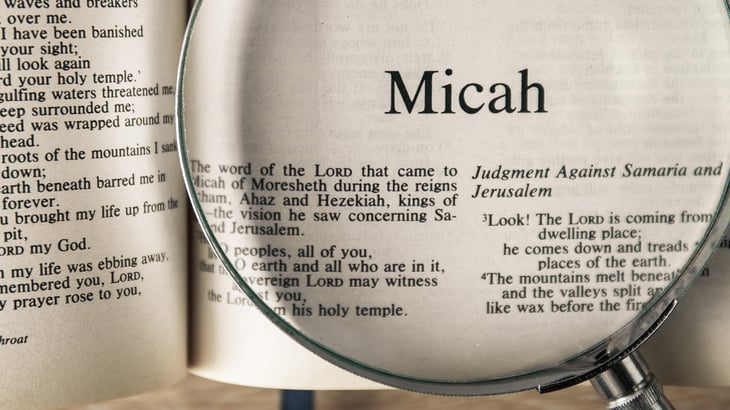The Scriptural Depth of the Great “O” Antiphons
The hymnody of Advent is exceedingly rich. Among this richness is the classic “O Come, O Come, Emmanuel.” As you open your your hymnal to this hymn (357), you will also find the Great “O” Antiphons. These ancient prayers have long been used to count down the days until Christmas. As you can see, each begins by addressing the Lord with a different phrase: “O Wisdom,” “O Key of David,” “O Emmanuel,” and so on.
Digging Deeper into Scripture: The Final Judgment
In Matthew 25, context plays a vital role to interpreting Jesus’ explanation of the final judgment. Jesus has made his triumphal entrance into the city of His crucifixion. Our Lord has taught many things: the parable of the two sons, in which the son who first refused to work in the vineyard changes his mind; what the signs will be of His return and how humanity will remain ignorant of the date; the parable of the ten virgins. These all stress a central theme—Christ’s return and the necessity of salvation in Christ alone.
Luther’s Catechism Series: Marriage
This post is adapted from Commentary on Luther's Catechism: Confession and Christian Life by Ablrecht Peters.
The Integrity and Authenticity of the Book of Micah
This is an adapted excerpt from the Concordia Commentary on Micah by Jason R Soenkensen.
Up until the late nineteenth century, the book of Micah was regarded as the work of the prophet Micah of the eighth century BC. Jeppesen surveys the progression of critical views on the book in detail, but included here are a few highlights. In his second edition of Die Propheten des Alten Bundes, Ewald estimated that chapters 6–7 did not come from the prophet Micah. In an 1881 article, Stade theorized an even smaller corpus of genuine material; it included chapters 1–3 with the exception of 2:12–13.25 Marti affirmed the positions of his predecessors but further limited the corpus of Micah’s material, excluding 1:2–5a, 7, 10–15; 2:5; and 3:3b.
Matthew 25: Be Ready for the End of the World
On November 8, 15, and 22, the three Sundays between All Saints’ Day and the First Sunday in Advent, the Gospel readings from the three-year lectionary cover the entirety of Matthew 25. This chapter is about the return of Jesus and the end of the world. In a way, these three Sundays serve as a sort of pre-Advent season that focuses (much like Advent) on the hope and expectation of Jesus’ return.
Understanding and Applying Proverbs
This post is an adapted excerpt from Concordia Commentary: Proverbs by Andrew E. Steinmann.
Those who read Proverbs today, like all modern readers of Scripture, are separated by a great distance in time and place from the original writers and audience. The challenge of applying the proverbs to contemporary life can be daunting when they refer to long past customs and situations that no longer exist (e.g., arbitration in the city gate). However, the timeless advice of the Book of Proverbs has spoken to every generation since the proverbs it contains were first written. In order to take advantage of the wisdom offered by this book, we need to explore a number of principles that apply to the unique challenges of interpreting this Wisdom book.
Luther’s Catechism Series: List of Household Responsibilities
This blog post is an excerpt from Commentary on Luther’s Catechisms: Confession and Christian Life by Albrecht Peters.
Digging Deeper into Scripture: Matthew 22:1–14
Jesus teaches the parable of the wedding feast as the third in a series regarding the rejection of the message of salvation by many Jews, the identity of Jesus Christ as the divine Son of God, and outreach to the Gentiles. It is noteworthy that He teaches these three parables after His triumphal entry into Jerusalem, where He will eventually endure torture and suffer death on the cross. This circumstance raises the tension to a fever pitch as the chief priests and elders seek to arrest Jesus and bring an end to His ministry.
Politics in the Pulpit?
One of the most challenging aspects of being a pastor in the United States in the twenty-first century is the deep division of the nation along political lines. Based on research from a 2014 Pew Research poll, it is likely that every pastor and church leader throughout the Synod serves people who identify as Republicans, others who identify as Democrats, and still others who identify with neither party.
Gerhard on the Effects and Consequences of the Final Resurrection
This post is adapted from On the Resurrection of the Dead and On the Last Judgment by Johann Gerhard.





















